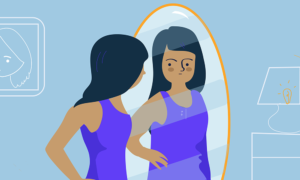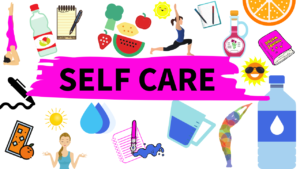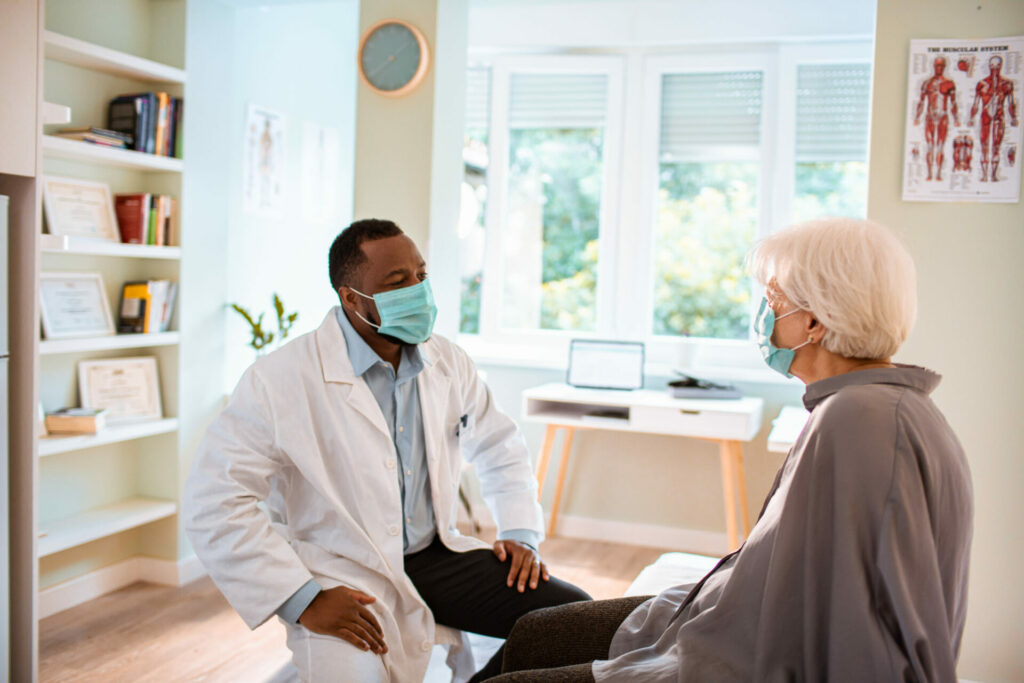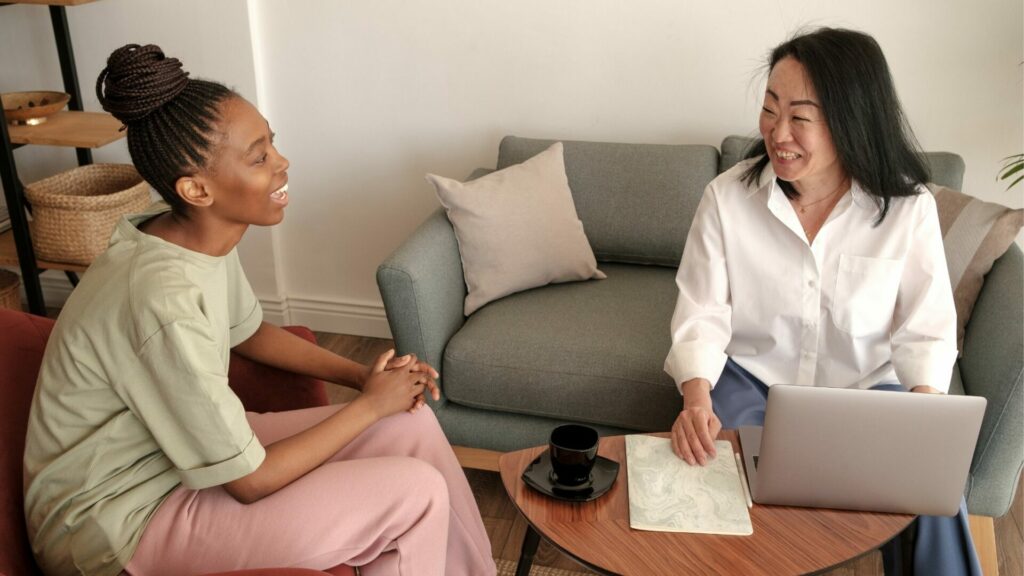Body dysmorphic disorder, or BDD, is a mental health condition that causes people to have a distorted view of their bodies. They may see themselves as being ugly, even when others see them as looking perfectly normal. People with BDD often feel ashamed and embarrassed about their appearance and may go to great lengths to try to hide it from others. If you are struggling with BDD, don’t worry – there is help available! In this blog post, we will discuss the treatment options for BDD and how you can overcome this condition.
Contents
What Is BDD?
 BDD is a mental disorder that causes a person to have a distorted view of their body. They may see themselves as ugly or deformed, even when they are not. BDD can cause a person to spend a lot of time thinking about their appearance and how they can improve it. They may also avoid social situations because they are afraid of what other people will think of them.
BDD is a mental disorder that causes a person to have a distorted view of their body. They may see themselves as ugly or deformed, even when they are not. BDD can cause a person to spend a lot of time thinking about their appearance and how they can improve it. They may also avoid social situations because they are afraid of what other people will think of them.
BDD makes a person focus on their appearance to the point where it interferes with their daily life. It can make them miss work or school, avoid social situations, and isolate themselves from friends and family. BDD can also lead to depression, anxiety, and even suicidal thoughts.
There is no one cause of BDD. It may be caused by a combination of genetic, biological, and environmental factors.
If you are struggling with BDD, there is help available. Treatment can help you manage your symptoms and live a healthy and fulfilling life. There are also many support groups and resources available to help you cope with BDD.
Treatment For BDD
Treatment for BDD is important because it can help a person manage their symptoms and live a healthy life. There are several different types of treatment available, including:
Medications
 Medications are one type of treatment that can be used to treat BDD. Antidepressants are often used to treat BDD because they can help reduce the obsessive thoughts and compulsive behaviors associated with the disorder. There are many types of antidepressants available, so it is important to talk to your doctor about which one may be right for you.
Medications are one type of treatment that can be used to treat BDD. Antidepressants are often used to treat BDD because they can help reduce the obsessive thoughts and compulsive behaviors associated with the disorder. There are many types of antidepressants available, so it is important to talk to your doctor about which one may be right for you.
Some of these medications are:
Selective serotonin reuptake inhibitors (SSRIs): SSRIs are a type of antidepressant that helps to increase the levels of serotonin in the brain. This can help to reduce the obsessions and compulsions associated with BDD. SSRIs work by blocking the reabsorption of serotonin in the brain, which helps to keep levels of serotonin high.
Serotonin and norepinephrine reuptake inhibitors (SNRIs): SNRIs are a type of antidepressant that helps to improve mood by affecting the balance of chemicals in the brain. SNRIs are often used to treat depression, but they can also be effective for treating BDD. The benefits of using SNRIs for treating BDD may include improved mood, reduced anxiety, and improved body image.
Tricyclic antidepressants (TCAs): TCAs are a class of drugs that were originally developed to treat depression. However, they have also been found to be effective in treating BDD. TCAs work by increasing the levels of serotonin and norepinephrine in the brain. These chemicals are thought to play a role in regulating mood and anxiety. TCAs can be used to treat both the obsessions and compulsions associated with BDD.
Monoamine oxidase inhibitors (MAOIs): MAOI s are a class of antidepressants that are rarely used because they come with some serious risks. These risks include high blood pressure and the potential for drug interactions. MAOIs work by inhibiting the activity of monoamine oxidase, which is an enzyme that breaks down neurotransmitters like serotonin and norepinephrine. This increase in neurotransmitter activity can help to improve mood and reduce anxiety.
Therapy

Therapy is an important part of the treatment for body dysmorphic disorder (BDD). It can help you understand your thoughts and feelings about your appearance, manage anxiety and depression, and improve your self-esteem.
Some types of therapy are:
Cognitive Behavioral Therapy (CBT)
CBT is a type of therapy that can help you change the way you think about your appearance. It can also help you manage your anxiety and depression. CBT works by helping you to identify and challenge the negative thoughts and beliefs that are causing you distress. In CBT, there are usually weekly sessions lasting for 60-90 minutes.
Many times there are people who may not want to go out in public or face social situations because they are afraid of how they will be judged by others.
Cognitive behavioral therapy can help people with BDD to:
-Identify and challenge their negative thoughts about their appearance
-Manage their anxiety and depression
-Improve their self-esteem
-Learn coping skills to deal with difficult situations
DBT
Dialectical Behavior Therapy (DBT) is another treatment option that is effective in treating BDD. DBT is a type of therapy that focuses on helping individuals learn how to manage their emotions and cope with difficult situations in a more productive way. This therapy can help people with BDD learn how to better deal with their negative thoughts and feelings, which can lead to a reduction in BDD symptoms.
Exposure and Response Prevention (ERP)
ERP is a type of CBT that is specifically designed to treat OCD. It works by helping you to gradually expose yourself to the things that trigger your OCD symptoms. This could involve coming into contact with the thing you fear, like dirt or germs. As you expose yourself to the trigger, you will learn to manage your anxiety and resist the urge to engage in compulsive behaviors.
ERP is an effective treatment for BDD, and it can often be done in conjunction with CBT. ERP usually involves weekly sessions lasting for 60-90 minutes. This type of therapy also makes it possible to do some of the work at home, between sessions. The working of ERP is to first identify the things that trigger your OCD symptoms. After that, you will gradually expose yourself to the trigger.
Acceptance and Commitment Therapy (ACT)
ACT is a type of therapy that can help you to accept the things that are out of your control. It can also help you to commit to making changes in your life that are important to you. ACT works by helping you to increase your awareness of thoughts and feelings related to your appearance. It also helps you to develop skills for managing difficult emotions. ACT usually involves weekly sessions lasting for 60-90 minutes.
There may be many people who feel like they need to change their appearance to be accepted by others.
ACT can help people with BDD to:
-Accept the things that are out of their control
-Commit to making changes in their life that are important to them
-Increase their awareness of thoughts and feelings related to their appearance
-Develop skills for managing difficult emotions
Interpersonal Therapy (IPT)
IPT Therapy is a type of counseling that helps people understand and work through their relationships. This can be especially helpful for those with BDD, as the disorder often leads to problems in social interactions. IPT is an effective treatment for a variety of mental health disorders, and it may help reduce some of the symptoms of BDD.
IPT works by helping people understand and change the way they interact with others. It can help people with BDD learn how to better cope with their symptoms and improve their relationships. IPT is typically conducted in weekly sessions, and it may last for several months. Sometimes there are group sessions, which can help learn how to interact with others.
Psychodynamic Therapy
Psychodynamic therapy is a form of treatment that focuses on the mind and emotions, rather than on the physical symptoms of a disorder. This type of therapy can help patients to understand and work through the underlying causes of their BDD. Psychedelics are another potential treatment for BDD. These drugs can help to change the way patients think about their bodies, and can also provide relief from anxiety and depression.
Psychedelics are a controversial treatment, and more research is needed to determine their efficacy in treating BDD. However, they may be a promising option for some patients who have not responded well to other forms of treatment.
Family Therapy
Families play an important role in the development and maintenance of body dysmorphic disorder (BDD). Research suggests that family members can either contribute to or help protect against the development of BDD. For example, if a parent is overly concerned with their appearance or comments frequently on their child’s physical flaws, this can increase the risk that the child will develop BDD. On the other hand, if a parent is accepting and supportive, this can help reduce the child’s likelihood of developing BDD.
In family therapy, there are a few different goals. The first is to educate the family about BDD. This includes helping them understand what the disorder is, how it develops, and how it is maintained. Family members also need to learn about the importance of accepting their loved ones with BDD as they are. Second, therapy can help families identify and change any patterns that may be contributing to the maintenance of BDD.
Support Groups
 Another form of treatment for BDD is attending a support group. This can provide individuals with the opportunity to share their experiences with others who understand what they are going through. Support groups can also be a great way to learn about new coping strategies and get encouragement from others who are working on overcoming their BDD. These support groups also provide a sense of community and belonging, which can be helpful for people who feel isolated due to their BDD. There are many online and in-person support groups available, so there is likely one that will be a good fit for you. If you are interested in finding a support group, you can ask your therapist for recommendations or search online to find one near you.
Another form of treatment for BDD is attending a support group. This can provide individuals with the opportunity to share their experiences with others who understand what they are going through. Support groups can also be a great way to learn about new coping strategies and get encouragement from others who are working on overcoming their BDD. These support groups also provide a sense of community and belonging, which can be helpful for people who feel isolated due to their BDD. There are many online and in-person support groups available, so there is likely one that will be a good fit for you. If you are interested in finding a support group, you can ask your therapist for recommendations or search online to find one near you.
Self-Care
 Treating BDD can be a long and difficult process, but there are things you can do to help yourself in the meantime. One of the most important things you can do is to practice self-care. This means taking care of yourself emotionally and physically. Some of these self-care activities are:
Treating BDD can be a long and difficult process, but there are things you can do to help yourself in the meantime. One of the most important things you can do is to practice self-care. This means taking care of yourself emotionally and physically. Some of these self-care activities are:
Doing Regular Exercise
One of the best things you can do for your mental and physical health is to exercise regularly. Exercise releases endorphins, which have mood-boosting effects. It also helps to reduce stress and anxiety. There may be many things about your appearance that you don’t like, but exercise can help you to feel better about yourself.
Getting Enough Sleep
Sleep is important for physical and mental health. It can be hard to get enough sleep when you have BDD because of the time you spend thinking about your appearance, but it’s important to try. Getting enough sleep will help you to feel rested and refreshed, and it will also help to reduce stress and anxiety. Sleep makes a big difference in how you feel, so it’s worth making an effort to get enough.
Eating a Healthy Diet
What you eat affects how you feel both physically and mentally. Eating a healthy diet can help to improve your mood and give you more energy. It’s also important for maintaining a healthy weight, which can be difficult for people with BDD. Eating a balanced diet is an important part of self-care. Some of the best food to eat for mental health care:
- Omega-three fatty acids, which are found in fish like salmon and tuna, can help to reduce anxiety and improve mood.
- Complex carbohydrates like whole grains can also help to improve mood.
- Vitamin B-12 is important for energy levels and cognitive function. It’s found in meat, poultry, eggs, and dairy products.
- Folic acid is important for mental health. It’s found in leafy green vegetables, legumes, nuts, and seeds.
Spending Time with Friends and Family
When you’re feeling down, spending time with friends and family can be a big help. They can provide support and love when you need it most. Just being around people who care about you can make a big difference in how you feel. So reach out to your loved ones when you’re struggling, and let them know that you need their support. Also, try to do things that make you happy. Doing things you enjoy can help to take your mind off of your appearance and improve your mood.
Making Time for Hobbies and Interests
It’s important to have hobbies and interests outside of BDD. Doing things that you enjoy can help to take your mind off of your appearance concerns. It can also help you to feel more accomplished and fulfilled. Some hobbies and interests that people with BDD find helpful are Art, including painting, drawing, sculpting, etc.
Doing Relaxation Techniques
Relaxation techniques can help to reduce stress and anxiety. They can also help you to focus on the present moment and be less focused on your appearance. There are many different relaxation techniques, so it’s important to find one that works for you. These relaxation techniques can be done anywhere, so you can do them when you’re feeling stressed or anxious. Some relaxation techniques are:
- Yoga: Yoga is a form of exercise that can help to improve your mood and reduce stress.
- Meditation: Meditation can help you to focus on the present moment and be less focused on your appearance.
- Progressive Muscle Relaxation: This involves tensing and relaxing different muscle groups in your body. This can help to reduce stress and improve circulation.
- Deep Breathing: Deep breathing is a simple but effective relaxation technique. It can help to slow down your heart rate and calm you down.
These are just some of the things you can do to take care of yourself both emotionally and physically. It’s important to find what works for you, as everyone is different.
Keeping a Journal
Writing in a journal can be a way to express your thoughts and feelings about your appearance without having to tell anyone else. It can also be therapeutic to write about your BDD and how it’s affecting your life. Keeping a journal is an important part of self-care. Keeping a journal can help you to:
Understand your thoughts and feelings about your appearance.
- Track your progress in overcoming BDD.
- Identify triggers for your BDD.
- Release emotions that you may be bottling up.
Writing in a journal is a personal way to deal with BDD. It can be helpful to write about your thoughts and feelings, as well as what’s going on in your life. If you don’t feel comfortable writing about BDD, you can write about anything else that’s going on in your life.
Talk to Someone Who Understands
It can be helpful to talk to someone who understands what you’re going through. Talking to someone who’s been through similar experiences can help you to feel less alone and understand that you’re not the only one struggling. There are many support groups for people with BDD, as well as online forums and communities. You can also talk to a therapist or counselor who specializes in treating BDD. Talking to someone who understands can be a big help in overcoming BDD.
Tips To Keep In Mind While Taking Treatment For BDD

There are many tips to keep in mind while taking treatment for Body Dysmorphic Disorder. Here are some of the most important ones:
Understand that your thoughts are distortions and not reality
You should always keep in mind that the thoughts you have about your appearance are distortions and not reality. This is one of the first and most important steps to take to overcome BDD. There may be many times when you will feel like your appearance is not improving, no matter how many treatments or surgeries you have undergone. It is important to remind yourself that these thoughts are only distortions and not reality.
Get rid of any kind of perfectionism
Another important thing to do while taking treatment for BDD is to get rid of any kind of perfectionism. This disorder usually starts with a person being extremely critical about their appearance. To overcome this, you need to learn to accept yourself the way you are. This doesn’t mean that you should stop trying to improve your appearance; rather, it means that you should be okay with imperfections.
Talk about your feelings
One of the most important things you can do while taking treatment for BDD is to talk about your feelings. It is very important to share your thoughts and feelings with someone who will understand and support you. This can be a therapist, a friend, or a family member. Talking about your feelings will help you feel better and will also help you stay on track with your treatment.
Consult a doctor
Last but not the least; make sure that you consult a doctor before taking any kind of treatment for BDD. This is because there are many treatments available for this disorder, and not all of them will be suitable for you. A doctor will be able to assess your condition and recommend the best course of treatment. Sometimes there may be underlying medical conditions that can cause BDD, so it is important to get a full checkup before starting any treatment.
These are just some of the things you need to keep in mind while taking treatment for BDD. Remember, the most important thing is to seek help from a professional if you think you may be suffering from this disorder. With the right help, you can overcome BDD and lead a happy and healthy life.
Conclusion
BDD is a difficult disorder to live with, but some treatments can help. If you think you may have BDD, talk to your doctor or mental health professional. With treatment, you can learn to cope with your symptoms and live a fuller life. Treatment of BDD also can help improve your quality of life. There is no one-size-fits-all treatment for BDD, but a combination of medication and therapy usually is the most effective. Medication can help reduce anxiety and obsessions, while therapy can help you understand and change the way you think about your body.
If you have BDD, know that you are not alone. Many people live with this disorder, but with treatment, they can lead fulfilling lives. Seek out treatment and support so that you can start feeling better about yourself—and your life. Your mental health — Your psychological, emotional, and social well-being — has an impact on every aspect of your life.
Hope this article was of help to you! If you are suffering from BDD, you may seek help from Therapy Mantra. We have a team of highly trained and experienced therapists who can provide you with the tools and skills necessary for overcoming BDD. Contact us today to schedule an online therapy or download our free OCD treatment app on Android or iOS for more information.


